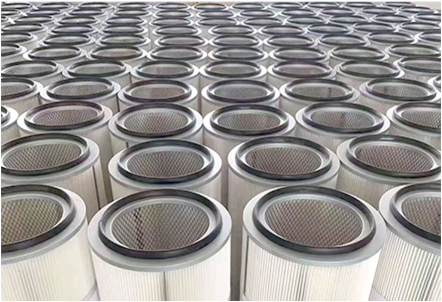 Tel:
+8615930870079
Tel:
+8615930870079
أكتوبر . 02, 2024 00:17 Back to list
Understanding Cartridge Oil Filters for Optimal Engine Performance and Maintenance Solutions
Understanding Cartridge Oil Filters Importance and Functionality
In the realm of automotive maintenance, the oil filter plays a critical role in ensuring the performance and longevity of an engine. Among the various types of oil filters available, cartridge oil filters have gained popularity due to their efficiency and ease of use. This article delves into the significance of cartridge oil filters, their functionality, and why they are an essential component in vehicle maintenance.
What is a Cartridge Oil Filter?
A cartridge oil filter is a type of filter that is designed to separate impurities from the engine oil. Unlike traditional spin-on filters, cartridge filters typically come as a filter element housed within a plastic or metal casing. This design allows for a more compact form and often less waste, as only the filter element needs to be replaced rather than the entire casing.
How Does a Cartridge Oil Filter Work?
The primary function of a cartridge oil filter is to remove contaminants from the engine oil. The process begins when oil circulates through the engine. As the oil flows, it carries dirt, metal particles, and other contaminants that accumulate over time. The cartridge filter contains a filter media, usually made of paper or synthetic fibers, that traps these impurities while allowing clean oil to pass through.
As the filter collects contaminants, it can become clogged, reducing oil flow and potentially leading to engine damage. Therefore, regular replacement of the cartridge oil filter is essential to maintain optimal engine performance.
cartridge oil filter

Advantages of Cartridge Oil Filters
1. Environmental Benefits One of the significant advantages of cartridge oil filters is their reduced environmental impact. Because only the filter element needs to be replaced, the amount of waste generated is minimized compared to traditional filters. Many manufacturers are also focusing on designing filters with recyclable materials.
2. Improved Filtration Cartridge filters are known for their superior filtration capabilities. The filter media used often boasts finer pores, which can capture smaller particles compared to conventional filters. This enhanced filtration leads to cleaner oil circulating in the engine, which in turn contributes to better engine performance and longevity.
3. Cost-Effectiveness While cartridge oil filters may have a slightly higher upfront cost compared to traditional filters, they can be more cost-effective in the long run. The ability to replace just the filter element means less frequent purchases of entire assemblies. Additionally, achieving better engine efficiency can result in lower fuel consumption.
4. Ease of Maintenance Many users find that cartridge filters are easier to handle during oil changes. They typically come with features like built-in anti-drain back valves, which can facilitate smoother oil changes and reduce the likelihood of dry starts, which can harm an engine.
Conclusion
Cartridge oil filters are an innovative evolution in engine oil filtration technology, combining efficiency, environmental consciousness, and ease of use. Their ability to trap small contaminants while minimizing waste makes them an attractive option for both professional mechanics and DIY enthusiasts. Regular maintenance and timely replacement of these filters are crucial to ensuring your engine operates at peak performance. As automotive technology continues to advance, cartridge oil filters will likely remain an integral part of vehicle maintenance, promoting cleaner engines and a healthier planet.
-
Types and Applications of Air Filtration CartridgesNewsJul.28,2025
-
The Role of Gas Turbine FiltersNewsJul.28,2025
-
Mastering Air Filter Cartridge UseNewsJul.28,2025
-
Advanced Turbine Filters for Modern Gas TurbinesNewsJul.28,2025
-
Cellulose Air Filter Cartridge Advantages in Dust FiltrationNewsJul.28,2025
-
Cellulose Filters for Air Particle ReductionNewsJul.28,2025

 Email:
Email:





